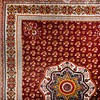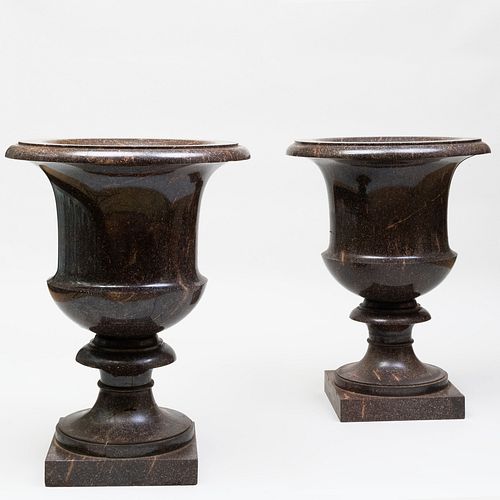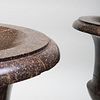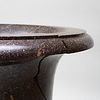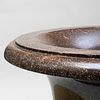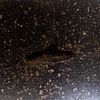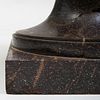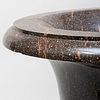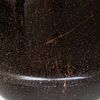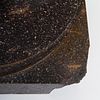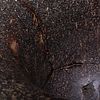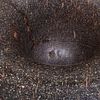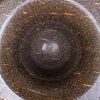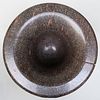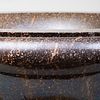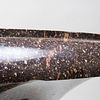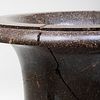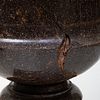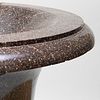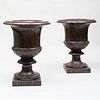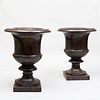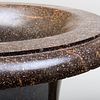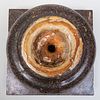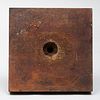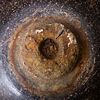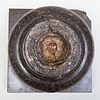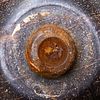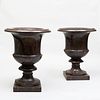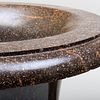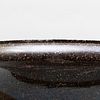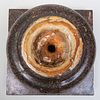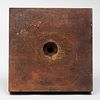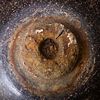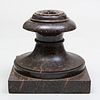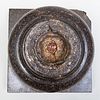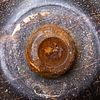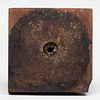Pair of Massive Swedish Neoclassical Porphyry Urns, the Model Designed by Louis Masreliez
Bid Increments
| Price | Bid Increment |
|---|---|
| $0 | $25 |
| $200 | $50 |
| $500 | $100 |
| $3,000 | $250 |
| $5,000 | $500 |
| $10,000 | $1,000 |
| $30,000 | $2,500 |
| $100,000 | $5,000 |
Each of campana shape, raised on a tapered socle on a square base. Each drilled for drainage.
37 1/2 x 28 in. diam.
Note: Swedish porphyry is a rare material which is predominately quarried in Alvadalen, Sweden. This quarry was discovered in the early 18th century and evolved in to a commercial enterprise in 1788. Owned by the Royal Family in the 19th century and used for creating official gifts for foreign dignitaries or as tokens of royal favor. Porphyry objects were well regarded by the Royal Family and especially King Karl IV Johann who reigned from 1818 to 1844. It is a very dense stone that only a well equipped sculptor can master, making it a highly coveted stone. This campana urn shaped model was designed by Louis Masreliez, an artist employed by the porphyry works. A pair of smaller, but identical urns were owned by Princess Sofia Albertina (1753-1829) and were acquired by the National Museum in Sweden and designed by Masreliez. Louis Masreliez (d. 1806) was a painter and designer and a leading decorator of the late Gustavian period. He was educated in Paris, Bologna and Rome, before returning to Sweden in 1783 at the request of Gustaf III. He was responsible for the designs of several Royal residences, including the Royal Palace in Stockholm, Tullgarn and Drottningholm.
